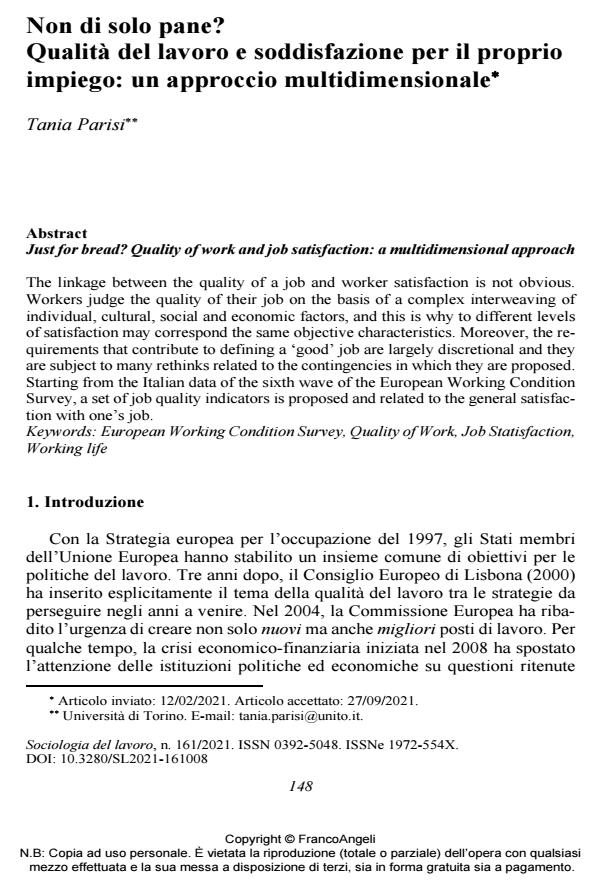Just for bread? Quality of work and job satisfaction: a multidimensional approach
Journal title SOCIOLOGIA DEL LAVORO
Author/s Tania Parisi
Publishing Year 2021 Issue 2021/161
Language Italian Pages 23 P. 148-170 File size 337 KB
DOI 10.3280/SL2021-161008
DOI is like a bar code for intellectual property: to have more infomation
click here
Below, you can see the article first page
If you want to buy this article in PDF format, you can do it, following the instructions to buy download credits

FrancoAngeli is member of Publishers International Linking Association, Inc (PILA), a not-for-profit association which run the CrossRef service enabling links to and from online scholarly content.
The linkage between the quality of a job and worker satisfaction is not obvious. Workers judge the quality of their job on the basis of a complex interweaving of individual, cultural, social and economic factors, and this is why to different levels of satisfaction may correspond the same objective characteristics. Moreover, the requirements that contribute to defining a ‘good’ job are largely discretional and they are subject to many rethinks related to the contingencies in which they are proposed. Starting from the Italian data of the sixth wave of the European Work-ing Condition Survey, a set of job quality indicators is proposed and related to the general satisfaction with one’s job.
Keywords: European Working Condition Survey, Quality of Work, Job Statisfac-tion, Working life
Tania Parisi, Non di solo pane? Qualità del lavoro e soddisfazione per il proprio impiego: un approccio multidimensionale in "SOCIOLOGIA DEL LAVORO " 161/2021, pp 148-170, DOI: 10.3280/SL2021-161008